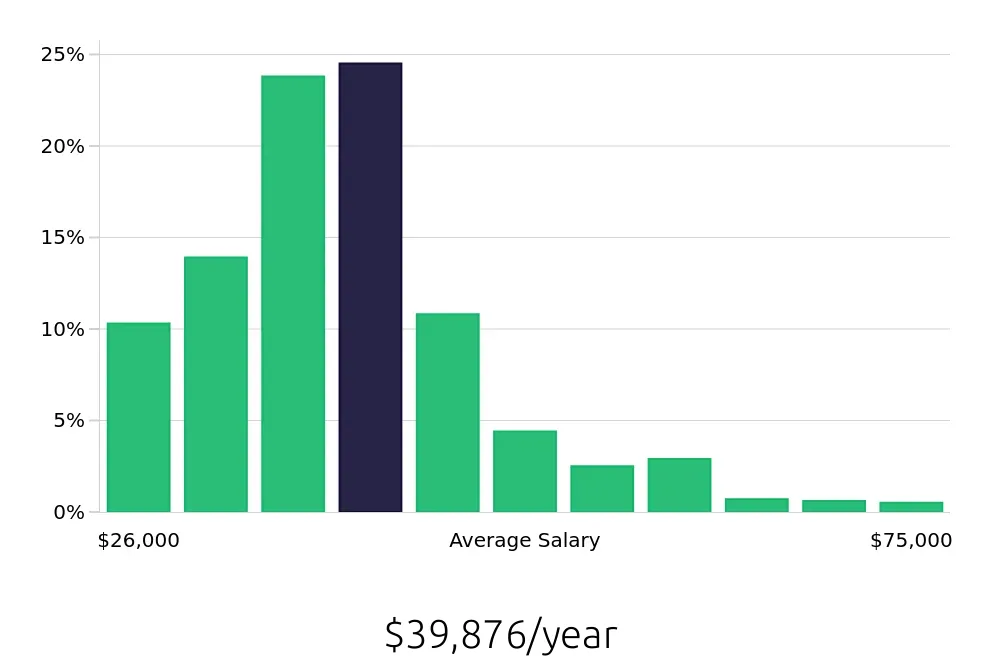Position
Overview
A Plumbing Helper works alongside professional plumbers to support various plumbing tasks. This role involves learning and assisting with tasks such as installing, repairing, and maintaining pipes, fixtures, and plumbing systems. It is a great entry-level position for those interested in the plumbing trade. The Plumbing Helper helps with measuring, cutting, and handling materials. They also clean and prepare work areas to ensure safety and efficiency.
The Plumbing Helper gains hands-on experience while learning from experienced plumbers. This role offers opportunities to develop essential skills and knowledge about plumbing systems. Helpers may use tools like wrenches, saws, and drills to assist with repairs. This position provides a solid foundation for those considering a career in plumbing. It allows them to gain practical experience and understand the daily responsibilities of a plumber.
Becoming a Plumbing Helper can be a rewarding career choice. It offers hands-on work and the chance to learn from experienced plumbers. The process to start this career is clear and manageable.
First, complete high school or an equivalent program. This is often the first step. Next, look into plumbing courses or apprenticeships. These programs teach the basics of plumbing work. After completing these courses, gain experience by working under a licensed plumber. This hands-on experience is key to building skills. Finally, consider getting certified. Certification can improve job prospects and show dedication to the field.
The journey to becoming a Plumbing Helper includes several key steps:
Pursuing a career as a Plumbing Helper can be a rewarding choice. Typically, this path takes a short period to get started. A high school diploma or equivalent is the main requirement. After this, one can enter an apprenticeship program. These programs usually last between three to five years. During this time, apprentices learn from experienced plumbers.
The time frame to become fully skilled can vary. Some helpers may reach full competency in three years. Others might take the full five years, especially if they choose to pursue further certifications. These certifications can enhance job opportunities and earning potential. Apprenticeships combine on-the-job training with classroom instruction. This ensures apprentices gain both practical skills and theoretical knowledge.
The Plumbing Helper position is essential for supporting licensed plumbers in a variety of plumbing tasks. This role involves assisting with the installation, repair, and maintenance of plumbing systems. The Plumbing Helper will work under the supervision of experienced plumbers, learning and applying basic plumbing skills and techniques.
Responsibilities:
Qualifications
Starting a career as a Plumbing Helper offers a concrete path into the skilled trades. This role serves as an entry point into the plumbing industry, providing hands-on experience with professionals. A Plumbing Helper assists in various tasks, from installing pipes to helping with repairs and maintenance. This job is a stepping stone to becoming a full-fledged plumber.
A Plumbing Helper finds work in many settings, including residential homes, commercial buildings, and industrial facilities. This job exposes individuals to different environments and challenges. The role is ideal for those who enjoy working with their hands and solving practical problems. With time and experience, a Plumbing Helper can advance to more specialized positions within the plumbing field.
Here are some pros and cons to consider:
The job outlook for Plumbing Helpers looks promising for those entering the field. The Bureau of Labor Statistics (BLS) reports an average of 5,400 job positions available each year. This steady demand ensures that new job seekers will find ample opportunities in this trade. A key factor in this outlook is the relatively low entry barrier, making it an accessible career choice for many.
Looking ahead, job openings for Plumbing Helpers are expected to increase by 2.3% from 2022 to 2032. This modest growth reflects the continued need for skilled workers to assist plumbers. With housing and commercial building projects on the rise, the need for experienced helpers will remain consistent. This growth rate is a positive indicator for job seekers aiming to build a career in plumbing.
Compensation for Plumbing Helpers is another strong point for job seekers. According to BLS data, the average national annual salary is $41,340, and the average hourly rate is $19.87. These figures provide a clear view of the earning potential in this field. With competitive wages and a stable job market, Plumbing Helpers can expect a rewarding career path.
